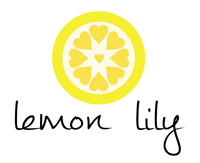Save 10% on any one order with this code
Tea and Caffeine
By Drake Tomlinson
Does your tea contain enough caffeine to give you a nice, clean burst of energy in the morning, or help you to overcome the midday slump? Or will it leave you feeling jittery, anxious, and overstimulated? Will it keep you from falling asleep at bedtime?
These are all valid questions, but it may surprise you to know that there is no single “right” answer here. The truth is, the amount of caffeine in tea depends entirely on the variety of tea leaves.
What is Caffeine?
Caffeine is a mild stimulant that occurs naturally in several plants, including Camellia sinensis. This is the plant that is used to steep black, oolong, green, and white teas, meaning that all of these varieties contain some amount of caffeine.
Caffeine has been shown to affect energy levels, mood, stamina, the vascular system, the digestive system, and other functions within the body.* In fact, many people choose to consume caffeine for its ability to clear the mind, lift the spirit, and banish fatigue*.
How Much Caffeine is in Tea?
On average, a six-ounce cup of black tea has about 50 milligrams of caffeine—less than half the amount in a standard cup of brewed coffee. A similarly-sized cup of oolong contains approximately 30-40 milligrams of caffeine, while green tea contains roughly 20-30 milligrams. White tea contains the smallest amount of caffeine of all “true” teas (i.e. those made from the Camellia sinensis plant)—just 15-20 milligrams per cup.
Herbal Tea (also called tisanes) such as chamomile, hibiscus, and peppermint teas are naturally caffeine-free. One exception is Yerba Mate, which contains around half the amount of caffeine per cup found in a similar-sized cup of coffee.
